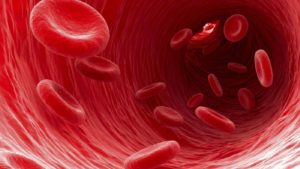Why am I always tired
Fatigue is the most common symptom among patients. It may not be the primary reason why someone is going to see a doctor but it is a common complaint that most people share. There will never be an anti-fatigue pill because there will never be one cause of fatigue. The reason why one person is tired could vary greatly from the next person. In this short article I will discuss some of the major causes of fatigue.
Inflammation
Like most symptoms in the body, inflammation must be addressed first before other factors are addressed. As discussed here, inflammation is really a reflection of an immune dysfunction. Chronic inflammation can be driven from our diet, microbes (bacteria, viruses, fungi, etc.), allergies, lack of sunlight, and toxic exposure.
When inflammation is high our body’s ability to produce energy will be shut down. Think of how you feel when you have the flu. When you get the flu, for the most part all you want to do is rest and stay in bed all day. This is actual what you should be doing because the immune response will produce a lot of inflammation. When inflammatory chemicals are high, enzymes that are used to produce energy are shut down.
Unfortunately, many of us are dealing with chronic inflammation all the time. It is like we are battling a mild flu at all times and therefore our ability to produce energy is impaired. The best way to control inflammation on your own is to eat a diet full of healthy fats (olive oil. Coconut oil, grassfed butter) and phytonutrients (fruits and vegetables) and get plenty of sunlight.
Blood Sugar Instability
Unstable blood sugar is a main reason why someone will have fluctuations in energy throughout the day. Glucose is the main fuel source for our brain and if our brain does not have fuel our whole body will feel tired (Tired Brain = Tired Body). Blood sugar stability is dependent on a few different factors but mainly it is a balancing act between the two hormones cortisol and insulin. Dysregulation of these two hormones is mainly driven from diet and stress.
Despite the fact that our brain runs on sugar, too much sugar/carbohydrates creates an environment for blood sugar instability. Eating too much carbohydrates (especially refined carbohydrates) causes huge surges in blood sugar and as a result a large secretion of insulin. The large secretion of insulin will then result in a significant drop in blood sugar and our body is placed on this roller coaster ride of high and low blood sugar. It is like being on a teeter totter where both people are not close in weight. Yes it is possible to still play on the teeter totter but it is much harder to balance it when people are of different sizes.
The Two Week Test is a good way to find out how well you tolerate carbohydrates.
Poor Fat Metabolism
In general we all want to be fat burners. If someone is a good fat-burner that means that they are not reliant on carbohydrates and protein as their primary fuel sources for their body. The reason why you want to be a good fat burner is that fat has the ability to provide much more long lasting energy than carbohydrates and protein. If someone is a poor fat burner they have to eat all the time, they will often wake up during the night, they will be susceptible to fluctuations in blood sugar, they will have poor aerobic capacity, and will often get very tired following activity.
Fat metabolism is strongly influenced by blood sugar stability. When insulin levels are high from a high carbohydrate diet then your ability to burn fat is impaired because insulin blocks the enzyme needed to burn fat. Therefore in order to become a good fat burner the first step is to keep insulin levels down. In order to do this most people need to increase their fat intake (yes eating fat helps you burn fat) and lower your carbohydrate intake. This is why many people will lose weight (sometimes dramatically) by cutting carbohydrates.
Anemia
 Anemia is the result of poor red blood cell production. This will cause an impairment in oxygen delivery throughout your body and if there is not enough available oxygen then the cells will not be able to produce energy. Many people view anemia as low iron, however it can also be the result of low copper, molybdenum, B6, Folic Acid, and B12. A CBC (Complete Blood Count) w/differential done to check this, along with a ferritin test to check for stored iron. Your ferritin level should ideally be 50-150ng/mL.
Anemia is the result of poor red blood cell production. This will cause an impairment in oxygen delivery throughout your body and if there is not enough available oxygen then the cells will not be able to produce energy. Many people view anemia as low iron, however it can also be the result of low copper, molybdenum, B6, Folic Acid, and B12. A CBC (Complete Blood Count) w/differential done to check this, along with a ferritin test to check for stored iron. Your ferritin level should ideally be 50-150ng/mL.
If your red blood cells are too big, this can also cause fatigue. This is known as megablastic anemia. This is folic acid and/or B12 deficiency. This becomes relevant when a CBC blood test shows the MCV to be greater than 91.0. Considering that proper gastric function is needed to absorb B12 and 20-25% of individuals cannot properly metabolize folic acid into its active 5-Methyl-tetrahydrofolate form (5MTHF), you can understand how common this problem may be.
Hormones
Many people suffer from hormone imbalances. Dysfunctions in your adrenal glands and thyroid glands can have a tremendous impact on energy levels. Evaluation of thyroid function is often checked when a patient complains of fatigue. However, it is possible to have poor thyroid function and normal lab tests. Also, if you suspect poor thyroid function that often means an immune problem because the number one cause of poor thyroid function is Hashimoto’s disease (an autoimmune disease).
Conclusion
Fatigue is a very common problem but that does not mean that it has to be something you suffer from. Our bodies were not designed to be tired all the time. Therefore, if you can identify and remove the stressors of the body, then build the body up with proper training, fatigue can be a thing of the past. For more information, watch this video or contact the office.

